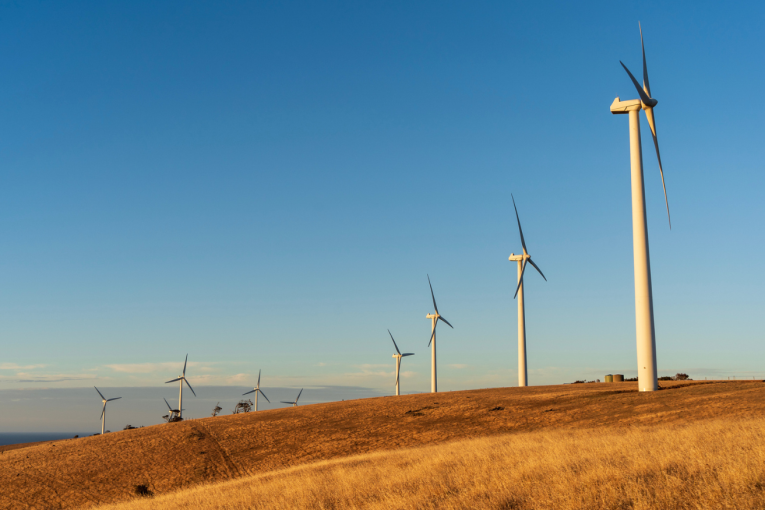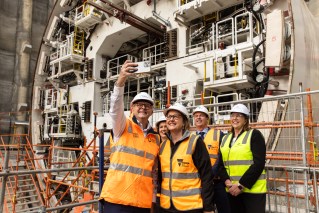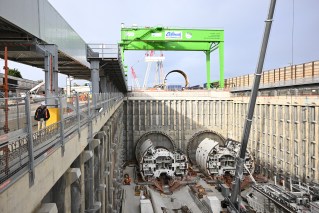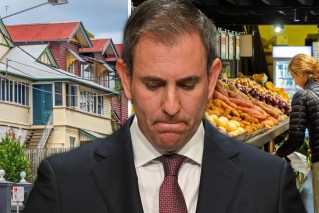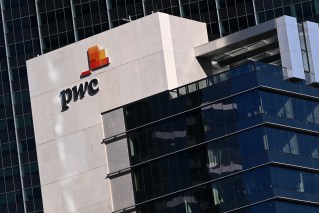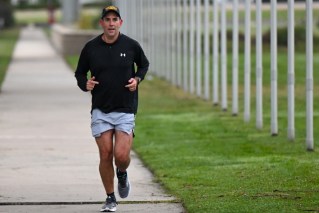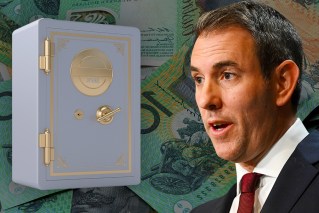Michael Pascoe: Still waiting for the real budget boot to drop

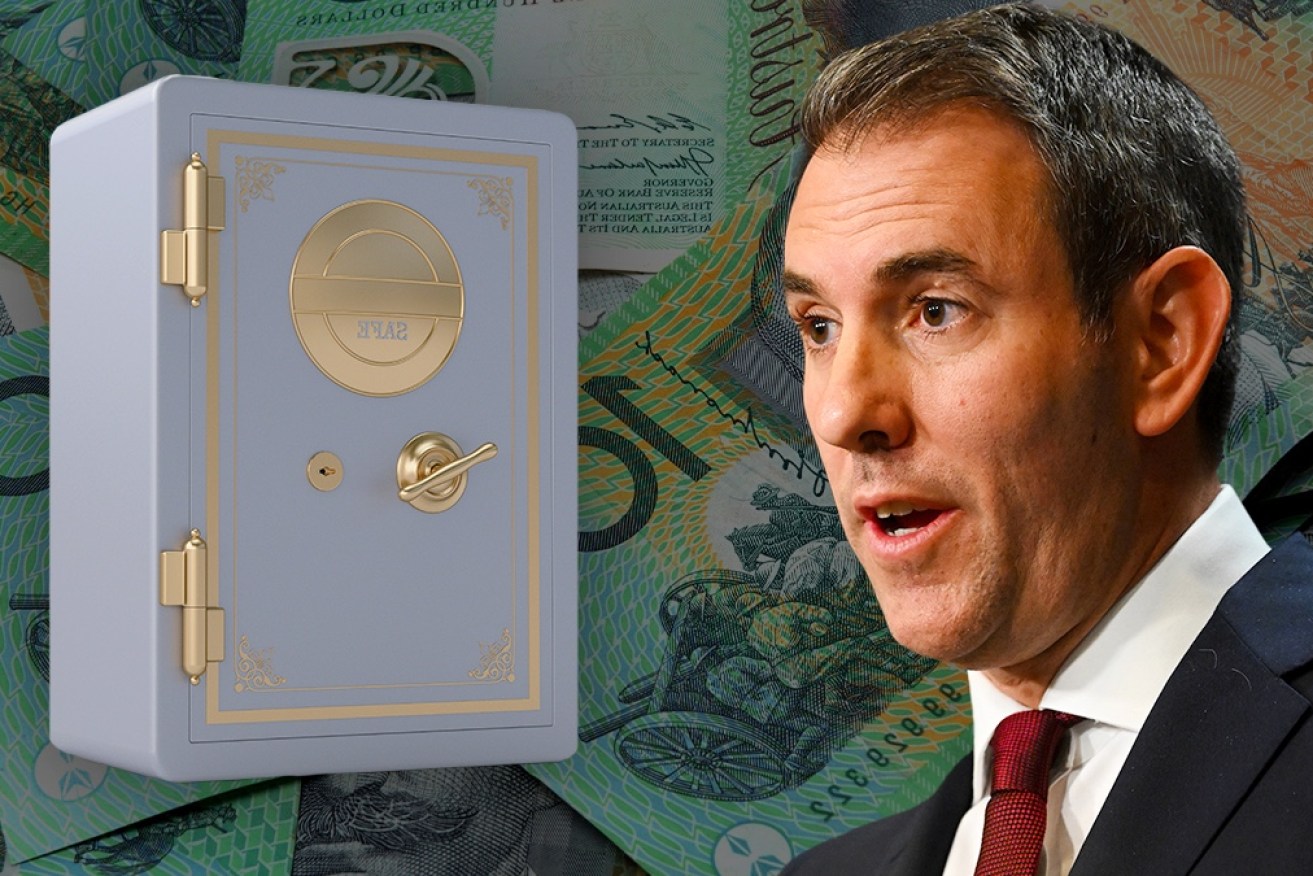
The budget delivered by Treasurer Jim Chalmers is a winner by default, Michael Pascoe writes. Photo: TND
Did the Treasury Secretary keep schtum in the Reserve Bank board room last week, not warning that Jim Chalmers was about to engineer a 75-point cut in the Consumer Price Index (CPI), letting the bank lift interest rates yet again in ignorance of what should have been a game changer?
Or did the other board members simply not believe the budget would do what Dr Chalmers claims?
Or, Option C, is the Treasurer spinning his inflation story to the point of misleading the public?
I’ll take Option D, Eddie – a bit of each of the above.
Which is a bit like the budget in general, now that the initial rush of instant analysis is over. There’s some interesting stuff, some good things, some, er, ‘spinning’, and there are certainly things to be disappointed about.
The easy summary of Jim Chalmers’ October stopgap budget was “watch this space”. Seven months later, we’re still waiting.
The government worked hard not to offend anyone with this budget and not to make our economic problems worse. It pretty much succeeded.
Problems remain
But not offending anyone doesn’t avoid leaving everyone disappointed. Not making our economic problems worse doesn’t solve those problems.
No, Jim, the housing crisis isn’t going to fix itself with a few more subsidies of one sort or another for landlords and your election gimmick housing fund. The budget (like the RBA) actually says our housing disaster is going to get much worse.
No, the problem of locked-in higher expenditure in coming years isn’t going to be solved without real tax reform. Waiting for the next election cycle is not doing us any favours.
In the meantime, no matter how hard the government tries to pretend otherwise, its feather-tickle fiddle with the Petroleum Resource Rental Tax (PRRT) is simply embarrassing. It adds up to three-fifths of stuff all, continuing the distinct impression Big Carbon owns both sides of politics.
The Australia Institute was quick to skewer it by pointing out the tobacco excise increase will raise more than the PRRT changes. (I could go further and note that smokers are more likely to be poorer and less educated than the rest of the population – disadvantaged people – while the multinational gas companies are rolling in more profits than they have ever dared dream of.)
CPI spin
But first, indulge me with the spin around Treasury’s claim to be knocking three-quarters of 1 per cent off the CPI, the strange role of the Treasury Secretary on the RBA board, and what he did or didn’t confide last week.
It’s a little wonkish, but if you compare the Treasury forecasts on Tuesday night with the RBA forecasts on Friday, something isn’t adding up, particularly when they both sup from the same Joint Economic Forecasting Group pot, along with the ABS and the departments of Finance and Prime Minister and Cabinet.
You might well have been given the impression that the various measures announced in the budget were going to reduce inflation by those 75 points.
This was an excellent political angle to counteract the Coalition’s lame chanting about big-spending Labor making inflation worse.
(Memo Angus Taylor, if that’s your best case, you haven’t got a case. As colleague Kohler explained, policy decisions made in this budget covering the five years to 2026-27 add up to $22 billion in extra receipts, offset by $42.6 billion in extra payments.
Economist John Quiggin put that in perspective in a single tweet.)
Tweet from @JohnQuiggin
Trouble is, there’s no sign of a sudden 75-point reduction in the CPI forecasts.
The actual budget papers – as opposed to the speech and sound bites – show Dr Chalmers is including the December temporary caps on wholesale gas and coal prices and the broader stick-waving at gas producers.
More obviously, international gas prices have fallen back below where they were when Russia invaded Ukraine.
(Our domestic gas producers though aren’t used to not having everything their own way. The AFR reported over the weekend that domestic gas prices have surged above the theoretical cap, are higher than producers can make exporting LNG with local small manufacturers paying well over the odds. The stick needs to be more than waved.)
The budget’s headlined energy rebates scheme will provide some help for poorer households and reduce inflation a little, as will more doctors bulk-billing and making some prescriptions cheaper, but it’s not slashing the CPI by three-quarters of 1 per cent.
Growth uncertainty
Treasury is a little more optimistic about economic growth and inflation than the RBA. Neither organisation has a track record of being great forecasters – nobody does – but the differences between their forecasts indicates their predilections.
Treasury also likes to flip-flop between two different measures of economic growth.
“Real GDP growth is expected to be 3.25 per cent in 2022-23,” says Treasury. That’s the figure you get as a year-average measure. It sounds much better than the 1.75 per cent year-ended measure everyone else uses. Maybe I’m just being pernickety.
In the measure we all use, Treasury and the RBA are both forecasting GDP growth of just 1.5 per cent for the new financial year.
That’s not flash, but Treasury spins it as the best of any major developed country – forgetting to mention that most of that growth is coming from faster population growth than other major developed countries. We’re having a per capita recession.
Looking further out in their crystal balls, Treasury forecasts GDP growth of 2.25 per cent in 2024-25, a notch higher than the RBA’s 2 per cent guess.
Inflation optimism
On inflation, the RBA was told nothing to make it change its forecasts between February and last week. It kept its guess steady of CPI growth of 3.5 per cent for the new financial year and 3 per cent for the year after.
Treasury thinks (or hopes) we’ll do better than that – 3.25 per cent in the new financial year and 2.75 per cent in 2024-25.
If the RBA board had confidence in those figures last Tuesday, I’m betting it would not have increased the cash rate.
Forecasting lower inflation also enables the government to claim we’ll have real wages growth. Well, we’ll see.
Landlord assistance
Then there’s the government’s commitment to assisting private landlords rather than getting serious about public housing. That is what the tax cut for would-be build-to-rent (BTR) developers means.
BTR is very fashionable in investor circles and it could help a little, but it is at the margin. REA Group head of economic research Cameron Kusher fingered a quicker method if incentivising landlords is what it’s all about.
Tweet from @cmkusher
The BTR deal involves three-year leases – a fine thing – but the properties can still be sold off after 10 years, thus not permanently increasing rental stock when we seem to have collectively decided Australia will steadily increase the percentage of people who will always rent.
I also quibble over the effectiveness of the 15 per cent increase in Commonwealth Rent Assistance payments – which cost $10 billion over the past two financial years.
Yes, it provides a little immediate help for some desperate people, but it effectively subsidises landlords at the bottom end of the rental market instead of investing in quality supply.
The budget’s immediate housing outlook is indeed bleak – dwelling investment down 2.5 per cent this year, down 3.5 per cent next financial year and down 1.5 per cent the year after, all during a surge in population growth.
In plain English, if you’re renting in the private sector (as the vast majority of renters are and always will be), you’re stuffed.
Short-term gains
The government can get away with the budget’s shortcomings for now, kicking the big problems down the road a bit further, because there is no vaguely credible opposition.
The Coalition’s lost decade remains a deadweight around their collective neck. It is symptomatic of the Opposition’s lack of talent that Angus Taylor is shadow treasurer. In a sane universe, his record as a minister would confine him to the backbench.
The Greens’ Adam Bandt actually managed to out-cliché Mr Taylor on Tuesday night, off in his own wonderland where magic wands deliver everything at once for everyone.
The inanity of the overall media attack was the see-sawing between “it hasn’t done enough for people” and “it will make inflation worse by spending more money”.
So politically, the budget was no loser and therefore a winner by default. Such is the state of the political contest.

